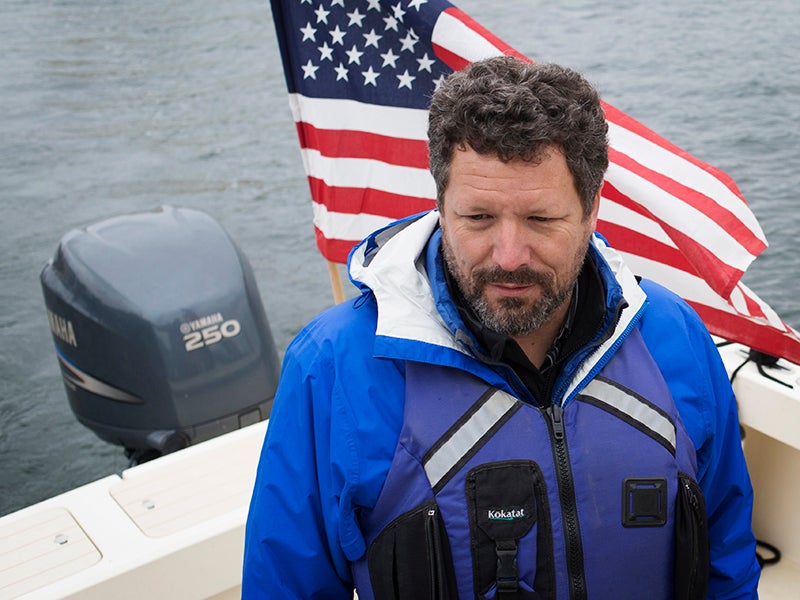How to Save the Puget Sound
Chris Wilke, executive director of Puget Soundkeeper, is on a mission to protect Puget Sound from dangerous agricultural and stormwater runoff.

This page was published 9 years ago. Find the latest on Earthjustice’s work.
Growing up, Chris Wilke was a self-described “water rat.” He spent endless hours swimming, digging for clams, fishing, boating and, when he was old enough, scuba diving in Puget Sound, the breathtaking water wilderness that defines his hometown of Seattle.
Wilke frequently spots marine creatures that most people only read about: gray and humpback whales, orcas, seals, porpoises and sea lions. He fishes for salmon, trout and lingcod, and sails regularly, setting out pots to catch Dungeness and red rock crabs.
But as beautiful as it appears, Puget Sound is in trouble. And while Wilke is both a Puget Sound native and the executive director of Puget Soundkeeper, he has witnessed firsthand the Sound’s fateful decline. Like other waterways around the country, Puget Sound is battered by pollution from industrial agriculture, sewage, fossil fuel production and stormwater runoff.
Protecting the Sound from the compound of these ills is a complex job, says Wilke, which is why he has joined Earthjustice’s lawsuit to fortify the Clean Water Rule. Puget Sound is fed by thousands of tributaries that traverse mountains, fields, cities and backyards. Nineteen river basins converge there, and much of the water that melts from the Olympic and Cascade mountain ranges drains into Puget Sound. To protect the Sound, it’s imperative to protect its connecting waterways.
These interlocking pieces of Puget Sound’s ecology were Wilke’s first concern when he reviewed the new rule, which he says fails to protect some of the Sound’s most important elements. In particular, he’s concerned that the rule doesn’t provide protection for groundwater or forested wetlands—critical to the protection of the Sound.
“If your favorite stream, fed by wetlands, is all of a sudden not covered by the Clean Water Act, this is not a good rule for you,” says Wilke. “It’s a step backward.”
The Waters of the U.S. blog series tells the stories of five courageous folks working to protect their beloved local waterways and to push the federal government to strengthen the EPA’s Clean Water Rule. Released in spring 2014, the rule is meant to bolster the 1972 Clean Water Act, which has been watered down over the years by concerted attacks from special interest groups. However, the Clean Water Rule exempts vital waterways, including some springs and desert washes, and Earthjustice—with help from grassroots water warriors—is fighting in courtrooms across the country to ensure that the rule is as protective as possible.